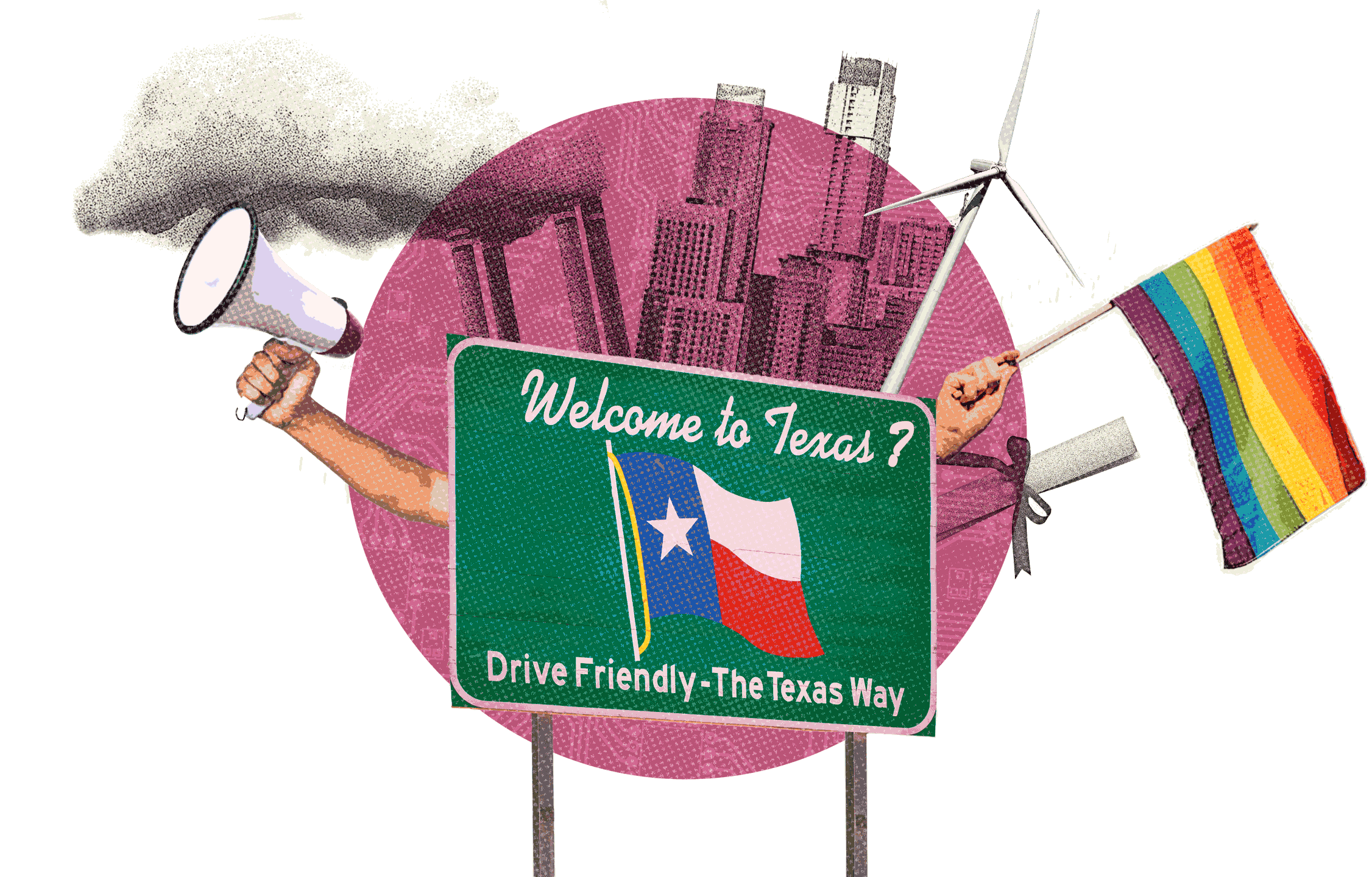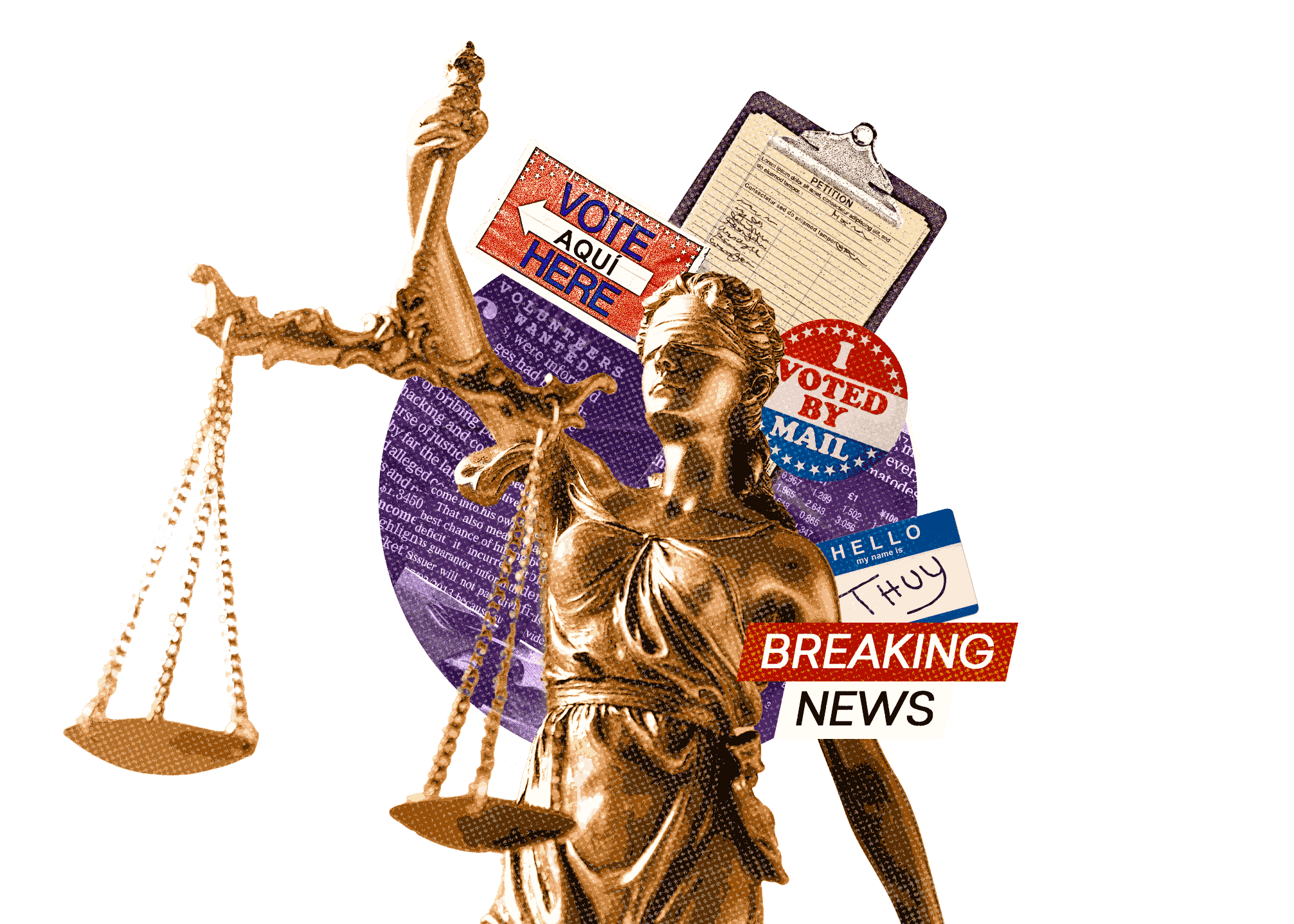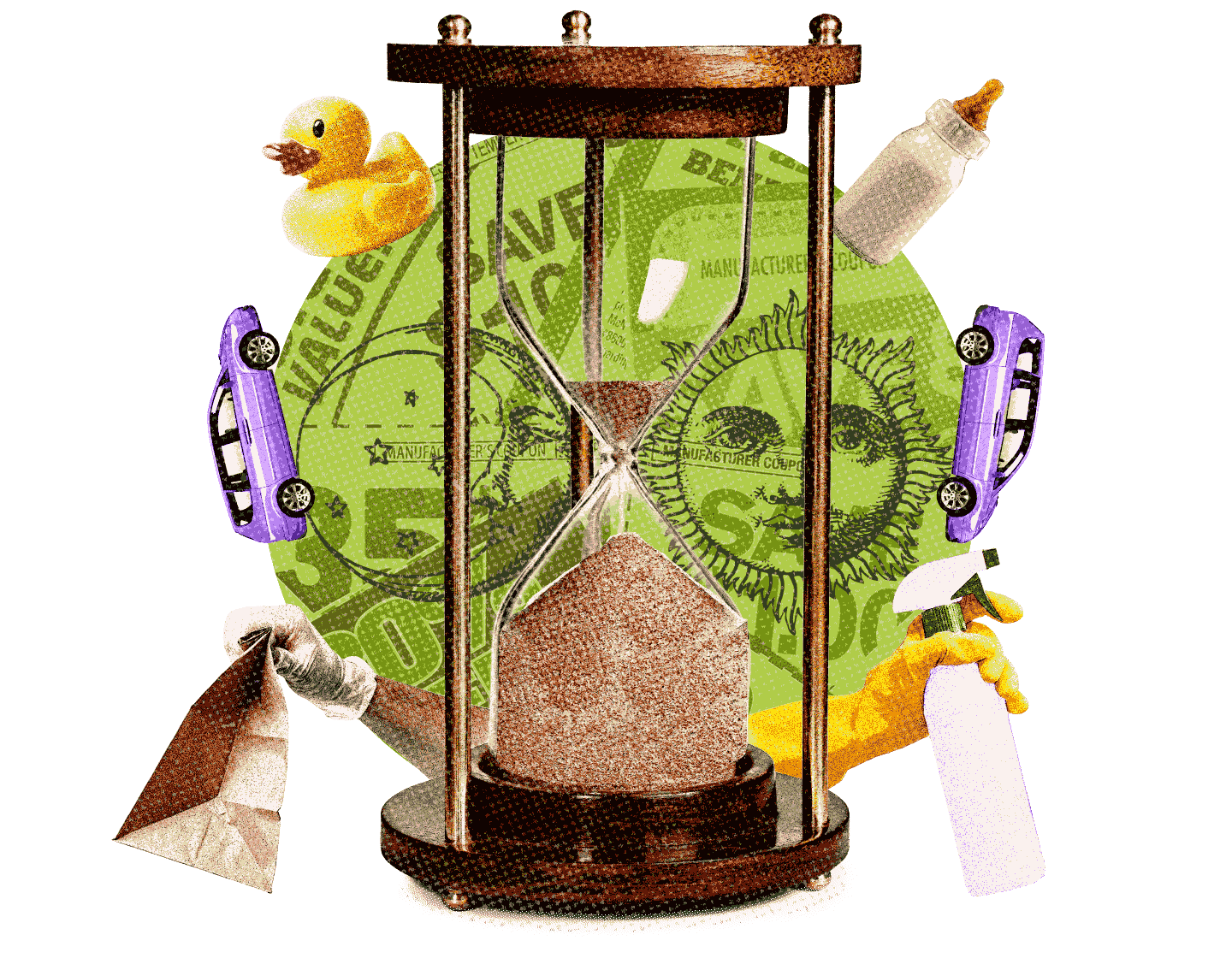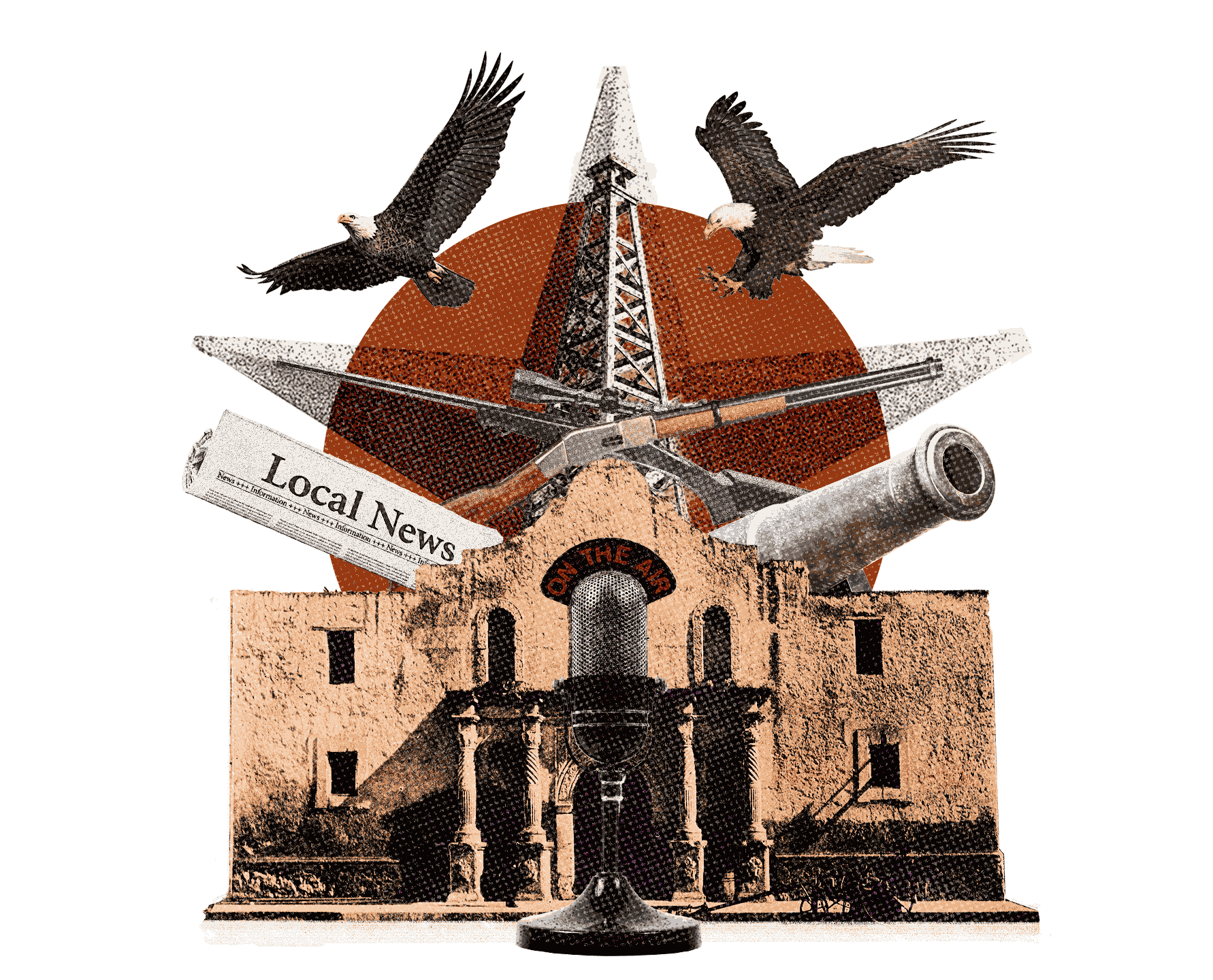The 7 Segments
Lone Star Progressives

Top concerns: COVID-19, healthcare, racism/race relations, and climate change
Lone Star Progressives have strong ideological views and a salient characteristic they share is the sentiment of feeling alienated in Texas. They hardly identify with the more patriotic, liberty-centric, Texan identities. Compared to other segments, they are the least likely to feel part of a community that understands them.
“I think Texas is becoming more dangerous because people are more selfish, more about themselves and do not care about other people. But then you do have those moments where you do still see communities that come together and take care of each other.”
– Ruby, Lone Star ProgressivE, black woman, Millennial
Lone Star Progressives are empathetic toward others, and their diminished Texas pride is in part because they see a lack of empathy and understanding toward historically othered groups. They are the group most likely to feel exhausted by divisions in politics, and to fear violence will result from political divisions.
While they are pessimistic toward the future of Texas society, Lone Star Progressives are excited about opportunities they might have in a rapidly changing Texas. More than any other segment, they believe that knowledge-based economies (e.g., tech, healthcare) and Texans working toward a common goal will define the future of the state. Their ideal Texas is one where people of all races, faiths, and backgrounds feel safe and feel like they belong.
* Lone Star Progressives are very active on social media. They have high levels of engagement with political issues and relatively high levels of education and social-economic status.
Share the profile of Lone Star Progressives
Civic Pragmatists

Top concerns: COVID-19, immigration, healthcare, and economy
Civic Pragmatists are optimistic yet pragmatic when they think about a changing Texas. Their ideal Texas is one where the state is a leader in the knowledge-economy industries, as well as a Texas where everyone feels safe and like they belong.
Civic Pragmatists are politically diverse, civically engaged and politically informed. They cite political, class, and racial divisions as the deepest schisms in the state. They are also concerned with issues of inequality, racism and immigration. However, they are practical rather than ideological in how they think about change and seek compromise closer to the political center. Civic Pragmatists believe that compromise is necessary and that the path to change happens not by leaps but by gradual steps.
“I used to be very proud of a lot of things here in Texas. Now it's a little disappointing sometimes to see what's going on. But still, I feel like I belong here. I just wish there was some more of a good balance between political things and acceptance.”
– Teresa, Civic Pragmatist, white woman, Generation X
* Civic Pragmatists are well-educated and predominantly reside in urban and suburban areas. This Thread is racially diverse, with 41% white, 34% Hispanic, and 18% Black Texans.
Share the profile of Civic Pragmatists
Rising Mavericks

Top concerns: COVID-19, racism/race relations, immigration
Rising Mavericks are the youngest and most ethnically diverse segment. They are proud Texans, though this pride is not undiscerning; for them, strong Texan pride and the ability to look at Texas’ past critically are not mutually exclusive. While they believe that America would be a better place if more states were like Texas, the majority also say that Texans should look critically at the state’s history of racial injustices.
They are ambivalent about their role in a rapidly changing Texas, with around half worried about being left behind. Despite the uncertainty, they maintain a sense of upward mobility. Seven in ten believe that things will get better for them in the next five years. A majority of Rising Mavericks believe that Texas’ future will be determined by risk-taking entrepreneurs, rather than Texans working collectively toward a common goal.
“Texas is huge and has totally different lifestyles across the state. Regarding Texan identity, we're always going to keep that idea of friendliness and helpfulness. But I do think we're in a transition period. When I think of what it means to be Texan in the future, I don’t know.”
– Cristián, Rising Maverick, Hispanic man, Generation Z
Rising Mavericks are politically diverse and intentional about hearing other views. The Rising Mavericks, often conscious of their nuance and uncertainties, reflect the complexities and complications of a younger, self-aware population that will heavily influence the future direction of the state.
* Around two-thirds of Rising Mavericks are under age 24 and over half identify as Hispanic. About a third (35%) are immigrants.
Share the profile of Rising Mavericks
Apolitical Providers

Top concerns: COVID-19, racism/race relations, economy/job, education
Apolitical Providers are very apprehensive about their future and the future of the state, with only about one in four agreeing the next five years will be somewhat or much better for Texas. They are ambivalent about the drivers of change, and are the most likely to worry about being left behind in a rapidly changing Texas.
Apolitical Providers generally feel detached from civic life. They do not express strong feelings about many issues and about one in five say they don’t know what an ideal Texas looks like. Compared to the other segments, Apolitical Providers are the least likely to engage in political activities; only 15 percent of eligible voters in this group participated in the 2012 and 2016 Presidential elections. Their disconnect however is not from an animosity toward politics, but from being occupied with more concrete day-to-day concerns. Apolitical Providers are Texans who are just trying to get by.
“I don't participate in any civic activity because voting really doesn't make a difference. It's just there to make you think you have a choice. I believe that the system has enough money to support all of us and the whole world. Why can't they help us?”
– Helen, Apolitical Provider, white woman, Generation X
*Apolitical Providers are 60% female, mostly Hispanic and white. Compared to other Threads, they are most likely to be financially precarious and to consider themselves lower status in their communities.
Share the profile of Apolitical Providers
Die-hard Texans

Top concerns: COVID-19, economy/jobs, immigration, gun control/Second amendment rights
Die-hard Texans are extremely proud to be Texan and distinctly optimistic about the future of Texas society. Their optimism is rooted in their staunch Texan pride and defensiveness toward Texas’ past and present. Most believe that America would be better if it were like Texas. While they recognize that Texas can be home to people moving into the state, Die-hard Texans strongly feel that to be truly Texan, one has to be born and raised in Texas.
Overall, Die-hard Texans lean conservative – though they are not actively engaged. Fully two thirds (67%) say they did not take part in any political or civic activity in the past year. However, they are a group deeply connected with their communities. For Die-hard Texans, this connection often manifests as protectiveness—and sometimes defensiveness —about who belongs and who does not belong in Texas.
“There is no such thing as a white Texan and a non white Texan. Either you’re Texan or you’re not.”
– Lydia, Die-hard Texan, Hispanic woman, Millennial
* Die-hard Texans are about half Hispanic (53%), about a third white, and have relatively lower income.
Share the profile of Die-hard Texans
Reverent Texans

Top concerns: immigration, covid-19, economy/jobs, gun control/second amendment rights
Faith is important to the Reverent Texans; fully 86 percent say that religion is a significant part of their lives. Compared to other Texans, Reverent Texans are the most enthusiastic about the future and believe that the economic success of Texas will be determined by entrepreneurial pioneers.
However, for the Reverent Texans, the future still has to fit with tradition. Their idea of an ideal Texas is one that proudly upholds its traditional values. Reverent Texans welcome newcomers, but emphasize that they should assimilate and adopt local values, rather than trying to change local culture. Reverent Texans firmly ascribe to “traditional” views of Texas – they are the most likely to say that to be truly Texan one must speak English, be politically conservative, and be Christian.
"Texas is known for its melting pot of diversity. However, don't try to change what's already here. Yes, bring your culture to us. But don't expect us to change our culture here.”
– Lily, Reverent Texan, white woman, Baby Boomer
Reverent Texans are solidly conservative, politically engaged, and generally distrustful of the media. They are the only segment where there is a near unanimous feeling of belonging in Texas—they feel accepted for who they are and feel secure that Texas is a place where neighbors understand, care about, and help each other.
* Reverent Texans are relatively older, are majority white (60%), about a quarter are Hispanic. Half identify as Protestant and about a quarter are Roman Catholic.
Share the profile of Reverent Texans
Heritage Defenders

Top concerns: immigration, economy/jobs, covid-19, gun control/second amendment rightS
Heritage Defenders value individualism and personal responsibility. They identify as conservative and are politically informed and engaged, yet there is a strong undercurrent of skepticism toward the government. They see an ideal Texas as one where traditional values are upheld and people can make something of themselves. This group construes Texas identity and Texan-ness as an idea to be preserved, a fixed identity to which newcomers should adapt.
However, unlike Reverent Texans, Heritage Defenders are less optimistic about the future of Texas and their place in it, with 41 percent saying they are worried they will be left behind. They feel embattled – they are among the Texans who feel most exhausted from political divisions. This sense of weariness, whether from polarization, a sense of losing the past, or apprehension toward the future, defines the Heritage Defenders.
“I can't think of a more un-American concept than political correctness. Freedom of speech is there not to protect accepted speech. It’s there to protect the controversial speech. When you start to restrain that or people start to restrain yourself, there's a problem.”
– Connor, Heritage Defender, white man, Generation X
* Heritage Defenders are well-educated, relatively older, nearly 60% male, and mostly white. About half live in suburban areas and 24% in rural areas.
Share the profile of Heritage Defenders
